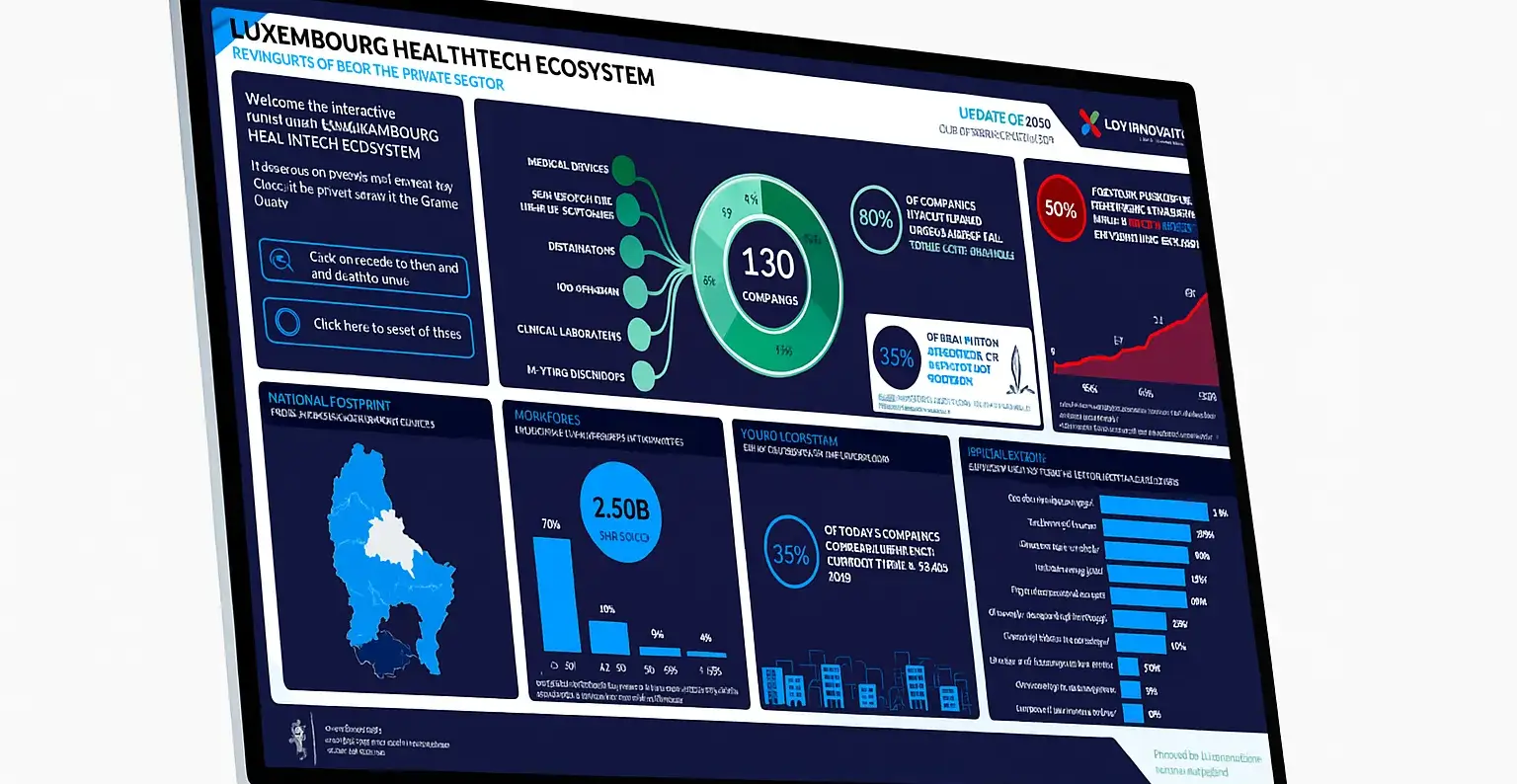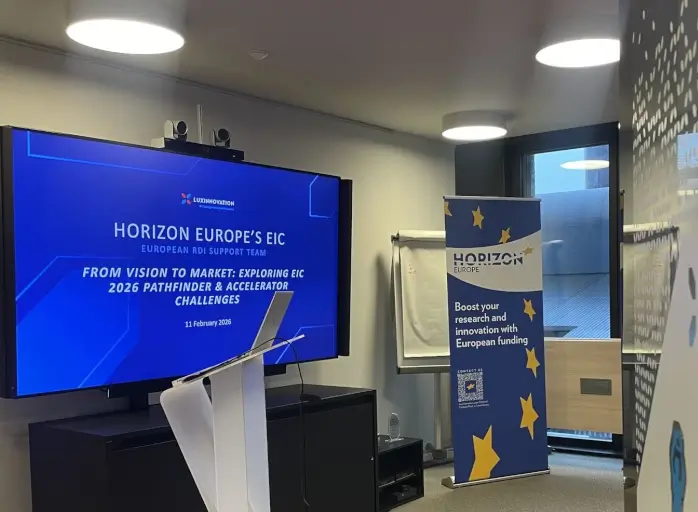

Une nouvelle cartographie de l’écosystème healthtech
À l’occasion de la Healthcare Week Luxembourg, le ministre de l’Économie a dévoilé les dernières données mises à jour de l’écosystème luxembourgeois des technologies de la santé. Elles révèlent un fort dynamisme sur les 5 dernières années.
 Jean-Michel Gaudron
Jean-Michel Gaudron
The Minister of the Economy, SMEs, Energy and Tourism, Lex Delles, announced that over the last five years, the Luxembourg healthtech sector has created more than 600 jobs, bringing the total to 2,500 positions across 130 companies. This announcement, made during the first day of Healthcare Week Luxembourg, is based on the latest update of the mapping of the healthtech ecosystem, jointly carried out by Luxinnovation’s Market Intelligence team and healthtech experts from Luxinnovation and the Ministry of the Economy. The previous version was based on data from 2020.
The mapping presented on 7 October shows that 36% of the country’s healthtech companies have been created in the last ten years, and that 72% of them employ fewer than ten people. “These characteristics, typical of a young ecosystem, represent an opportunity for growth, particularly through digitalisation,” said Minister Delles. 50% of the companies now have a digital focus, compared with only 28% in 2020, when the last mapping was conducted.
35% of startups
A third (32%) of companies in the sector operate in the field of medical devices. They develop, produce and market regulated health technologies, including software for medical use, such as for the diagnosis or treatment of diseases. Another third (31%) are active in the field of unregulated health software with no medical purpose. The remainder are companies involved in the distribution of medicines and health products (19%), biopharma (13%), in vitro diagnostics (2%) and medical analyses (2%).
The mapping also shows that 86% of the listed healthtech companies focus exclusively on the human health market. The remaining 14%, initially active in other markets, are now diversifying their technological offering into human health, seen as a new growth opportunity. 35% of the companies listed are startups and scaleups, a third of which have been supported by the Fit 4 Start programme.
It is a good tool for facilitating collaboration between national actors. Mohamed Toumi, Luxinnovation
Healthtech companies are mainly concentrated in two geographical areas: the cantons of Luxembourg and Esch-sur-Alzette. This confirms the growing attractiveness of the Belval site, with the Cité des Sciences and the Technoport incubator, as well as the House of BioHealth, near which the SüdSpidol and the future HE:AL Campus will be located.
“This mapping is a proactive exercise based on Luxinnovation’s exclusive knowledge of innovative companies,” explains Mohamed Toumi, Senior Market Intelligence Analyst at Luxinnovation. “In addition to benefiting from it for promotion, we use it to monitor the evolution of the healthtech ecosystem in Luxembourg. It is also a good tool for facilitating collaboration between national actors and enabling informed decision-making by identifying gaps, strengths and opportunities within the Luxembourg ecosystem."







